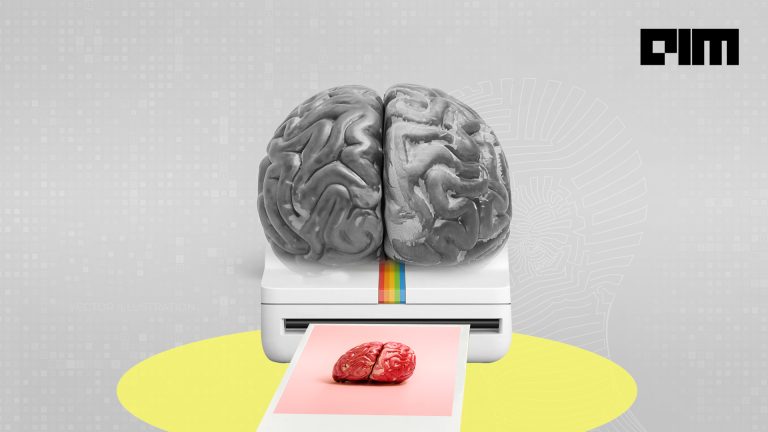Mark Zuckerberg recently made a style statement when he wore a gold chain and pendant in an Instagram reel. The pendant will soon feature embedded AI agents, given Meta’s ongoing work on smart glasses.
Moreover, Meta recently announced the launch of its AI assistant, Meta AI, across WhatsApp, Facebook, Instagram, and Messenger in India. This assistant helps users with tasks such as planning, learning, creating content, and connecting with others.
Additionally, Meta introduced AI Studio, which enables users to design AI characters for various purposes, from generating memes to offering travel advice. Users can access the platform via the AI Studio website or on Instagram.
Meta is continuously evolving and customising its offerings, with wearables being the next frontier to integrate AI agents.
Speaking of smart glasses getting AI agent integration, in a recent keynote session, Cayden Pierce from the MIT Media Lab said that focus should be on the future of smart glasses and the concept of proactive and contextual AI agents.
“Wearables, in order to become more useful, need AI agents embedded which are context-aware and proactive,” he said, elaborating that instead of waiting for a user to ask for information, these systems should automatically provide relevant data based on the user’s environment and activities.
One instance Pierce gave was how a proactive AI agent could assist when landing at an airport late at night, specifically in automatically arranging transportation to your accommodation.
Additionally, he pointed out another use case of language learning glasses that can automatically provide translations during conversations without user prompts.
Echoing this, one X user said:
AI Agents are the killer app for smart glasses. https://t.co/UkI8S8Xd1B
— Nick Grous (@GrousARK) May 14, 2024
AI Wearables
A few months ago, US-based company Limitless, launched the Limitless Pendant in the wearable AI space. This AI-powered device captures insights from the wearer’s life while safeguarding user privacy and maintaining confidentiality in digital interactions.
A feature called Consent Mode was incorporated, allowing the device to selectively record voices only from individuals who granted consent.
Humane AiPin is another wearable AI device designed to act as a personal assistant, aiming to reduce the need for smartphones by providing hands-free interaction with AI.
Initially, people had mixed feelings about it. However, the introduction of the pendant feature sparked discussions about how the Humane AiPin can improve. Many users are now excited to use Humane AiPin.
The excitement does not stop there, as there is more that the Humane AI Pin will see in the coming future, including the integration of AI agents, gesture-based unlocking, and Google Calendar integration, to further enhance the experience.
Outside the US, the WIZPR ring by South Korean tech company, VTouch is noteworthy. The WIZPR ring features a voice-based interaction method, marking a new chapter in human-AI interaction. This advancement allows for computing even when your hands are busy or your screens are out of reach, elevating human-computer interaction to the next level.
“Now, without pulling out a smartphone, we can effortlessly talk to our chosen AI and multitask while driving, walking, jogging, or picking up groceries,” said VTouch founder Nathan Dohyun Kim in an introductory video explaining the ring’s functionality.
Meanwhile, there is also the Rabbit R1, an AI-powered gadget designed to simplify user interaction with technology. Although it’s sometimes referred to as a ‘smartwatch,’ the R1 is more accurately a standalone AI assistant that can be worn or carried. Additionally, Perplexity has partnered with Rabbit R1 to integrate advanced language processing capabilities into the device.
Meta’s Ray-Ban smart glasses are another example that allows one to take calls, play music, capture photos and videos, and even live stream them. “These are the first smart glasses built and shipped with Meta AI, allowing hands-free interaction wherever you go,” said Mark Zuckerberg during Meta Connect.
On similar lines, OpenAI partnered with WHOOP to launch WHOOP Coach, an AI wearable providing personalised, conversational insights on health, fitness, and well-being. WHOOP, a Boston-based company, is known for its fitness tracker that monitors strain, recovery, and sleep, popular among athletes.
AI Agents Enhancing Wearables
It’s a completely new direction: moving forward with wearables and enhancing them with AI. Giving these devices an AI agent push will be transformative. Recently, the Google announced Project Astra, an initiative to develop universal AI agents capable of perceiving, reasoning, and conversing in real-time.
In a blog post, Google DeepMind chief Demis Hassabis mentioned that with the release, it’s easy to envision a future where people could have an expert AI assistant available through their phone or glasses.
Its agentic capabilities have particularly captured everyone’s attention, with some calling it the biggest part of the update and “a step closer to autonomous agents.”
Throughout, people have appreciated Astra’s long context support, its memory—described as being able to “remember where the glasses were“—and its native video processing capabilities. This contrasts with GPT-4o, which some argue can only process a single frame at a time.
The growing interest in AI wearables, like Google Astra, is sparking excitement and debate. A Reddit discussion revealed that users are excited about how Project Astra can help locate misplaced items like glasses and keys, as well as assisting in everyday tasks like vehicle repairs and cooking.
However, significant concerns about privacy are also being raised, with some users debating the implications of AI tracking personal items and activities.
This discussion highlights the need to balance convenience and privacy in AI. For instance, Apple sets a high standard for privacy in AI with its Private Cloud Compute, which extends the privacy and security of Apple devices into the cloud, unlocking more intelligence.
In prioritising privacy in its OS integration of AI, Apple focuses on seven major themes: multimodal I/O, agentic, frictionless, initiative, delegation hierarchy, modularity, and privacy.


































